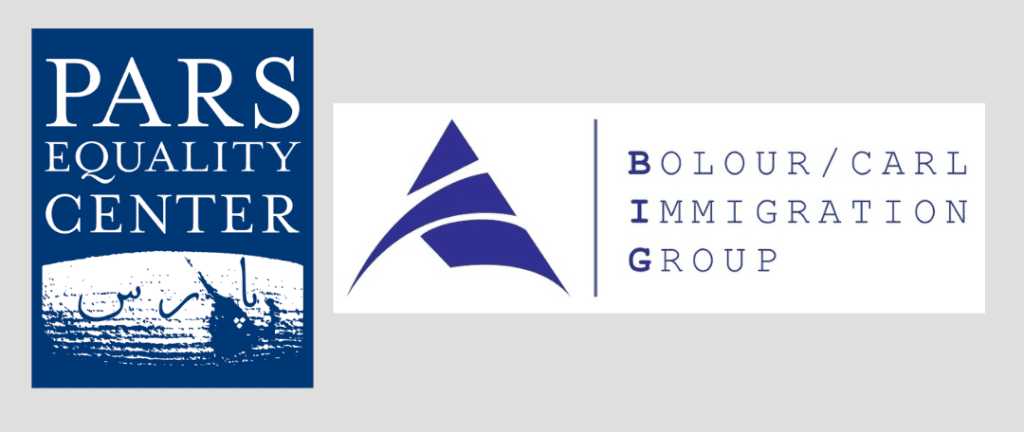
Press Release
June 27, 2022
Pars Equality Center and Bolour / Carl Immigration Group believe the recent TRIG exemptions fall short from revoking the IRGC TRIG ban
On June 23, 2022, The Department of State (DOS) and Department of Homeland Security (DHS) published a document in the Notice section of the Federal Register, exempting individuals from Terrorism Related Inadmissibility Ground (TRIG) who provided insignificant material support or limited material support under substantial pressure to a terrorist organization. Since then, it appears that some commentators have concluded that this notice lifts the IRGC TRIG ban – it does not.
Under this latest notice, the State Department says it is up to the individual to present evidence to prove insignificant/limited material support. After evaluating this evidence, it is within the adjudicating officer’s discretion to determine a TRIG exemption by looking at the totality of circumstances.
Although DHS/DOS may have taken a positive step to allow case-by-case determination of TRIG inadmissibility (possibly following last week’s DOS/DHS announcement relating to Afghan nationals TRIG exemption), this notice does not lift the IRGC TRIG ban. First, it is important to note that this document is published in the Notice section of the Federal Register and will not amend the CFR, does not impose requirements with legal effect, and does not affect rulemaking proceeding. This will change if the document gets published in the Rule section of the Register.
Second, there is no explicit language exempting mandatory military service from TRIG nor is there a mention of IRGC. Had the government intended to exempt IRGC conscripts, they would have likely included explicit language (similar to the notice published concerning Afghan nationals and their activities under Taliban).
Third, situational and group-based TRIG exemptions have existed for many years. Notably, in 2011, the government exempted certain applicants who, under duress, received military-type training from, or on behalf of, a terrorist organization, regardless of the tier (see January 7, 2011 Exercise of Authority). Nonetheless, we have failed to see this exemption in practice since the designation of IRGC as FTO in April 2019.
Overall, we believe the latest attempt by DHS/DOS to address the alarming TRIG blanket ban a step in the right direction. This should provide individuals with opportunity to present evidence that their admission will not pose a national security or public safety risk to the United States. How this exemption notice will work in practice is yet to be seen.
